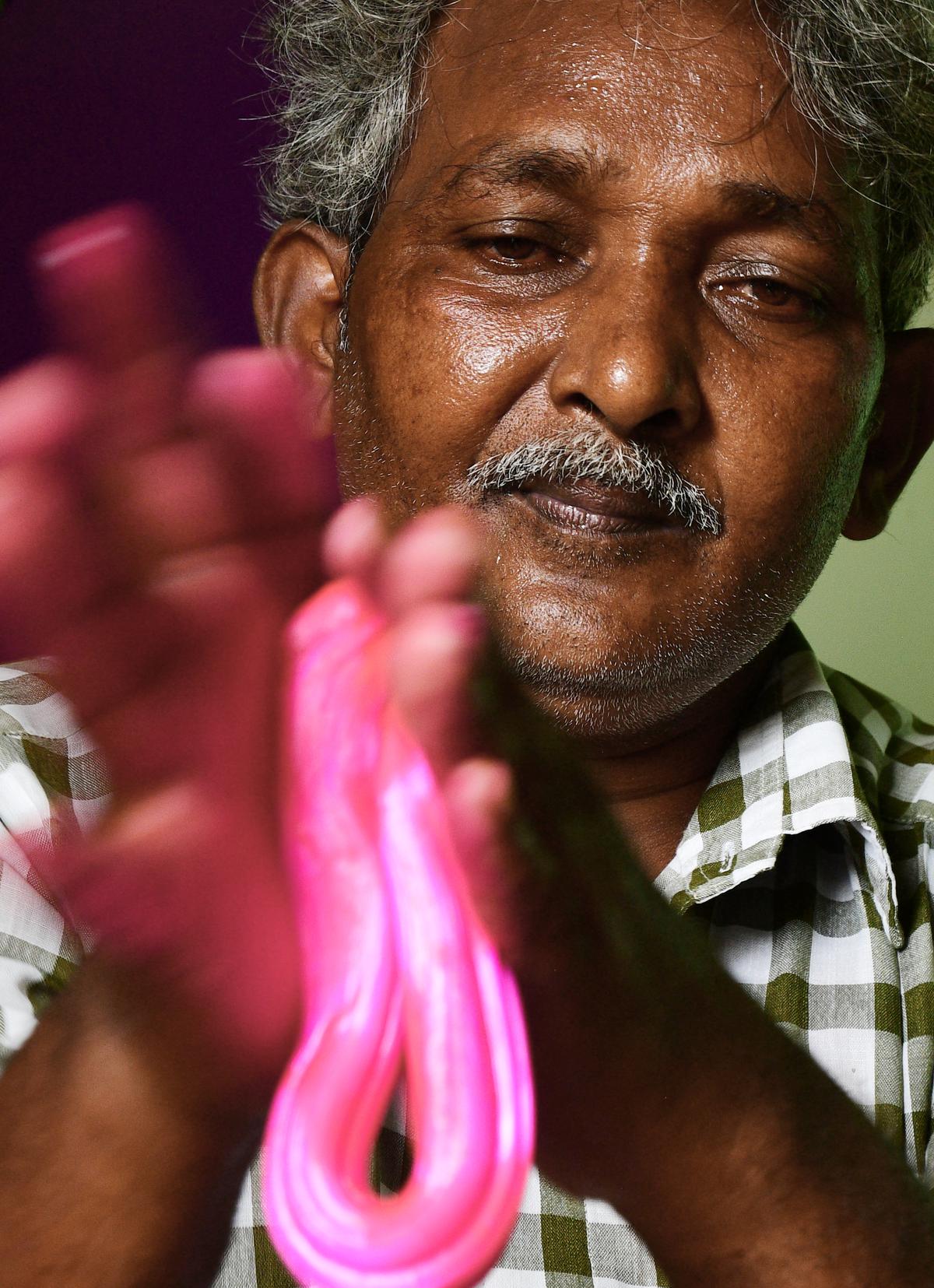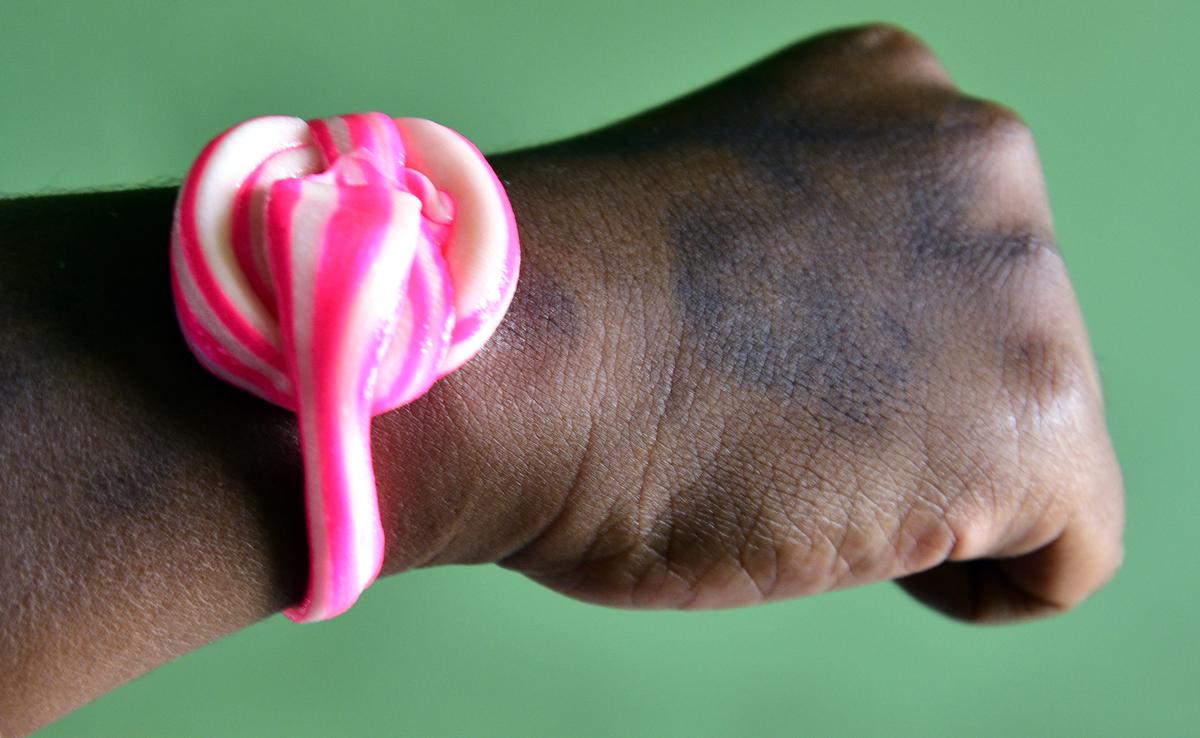The last of the mittai makers: Meet Coimbatore’s jow mittai man
Coimbatotre-based G Thavalingam, among the last few sellers of jow mittai in Tamil Nadu, on the joys of making candy for a living
Coimbatotre-based G Thavalingam, among the last few sellers of jow mittai in Tamil Nadu, on the joys of making candy for a living
Every day at noon, G Thavalingam catches a bus to Karumbukkadai after a meal of rice, rasam, and poriyal. He carries with him precious cargo: freshly-made jow mittai wrapped in plastic paper, mounted on a bamboo pole that he balances on his shoulder. At the top of the pole sits a doll with cymbals for hands. Thavalingam walks to his usual spot in the neighbourhood, and tugs at a rope on the pole that brings the cymbals together: ‘Clang, clang, clang’. And the children would come running.
This has been his routine for three decades: he rarely takes a day off. When I met the 55-year-old 10 years ago at his Puliakulam house, jow mittai had its sheen intact: one could still find men selling them street to street across Tamil Nadu. But they are becoming rarer and rarer. Which is why I went looking for the man one morning.
Today, after two years of unpredictability due to the pandemic, during which several men who sold the candy have either retired or moved on to other jobs, Thavalingam continues to do what he does best. Business has picked up over the past few months and he is a happy man.

Thavalingam, shows how jow mittai is made. He adds lemon juice to sugar syrup and lets the concoction boil till he attains a certain consistency. He then pulls the resulting semi solid by hand and adds food colour
| Photo Credit: Siva Saravanan S
“This is something I know well,” he says, lighting the stove to place an aluminum container with a mixture of 1.25 kilograms of sugar, two tumblers of water, and the juice of two lemons. He will let it boil till it attains a gooey consistency: this can take anywhere between 20 to 30 minutes. “I am from a family of farmers. We still hold some land at Usilampatti near Madurai,” he says. But lack of rains, combined with several other factors, pushed him to look for other opportunities to earn a living.
“This is how I ended up in Coimbatore when I was 18,” he says, stirring the watery sugar syrup. His brother was selling the candy then and Thavalingam took after him. “There were 50 people who made jow mittai in the city, some 20 years ago,” he says. Today, only a handful exist.
Jow mittai, Thavalingam says, has its origins in Mumbai. “The late Kannuchamy, also from my hometown, was the first one to learn the craft in Coimbatore,” he explains. “He was legendary for the intricate ways in which he shaped the candy. I have heard that he could make grand chariots and camels.” The man taught several others; most jow mittai makers in the city follow Kannuchamny’s methods.

Thavalingam crafts his candy into various shapes. Here, he has made a watch
| Photo Credit: Siva Saravanan S
“This is not an easy job,” he says, adding: “I am on my feet all day.” But he enjoys the process: he gets to breathe in the sweet smell of sugar syrup every morning, interacts with children, and munches on his candy on and off.
The molten mass is now ready to be pulled by hand. Thavalingam tips it onto a plate and lets it cool. He then stretches it in repeated motions, pulling it like elastic, until it becomes a pearl-white rubbery mass.
“The other day, I saw jow mittai squares in plastic wrappers sold at a shop,” he says, rather amused. He did stop to wonder if it was the end of the road for people like him. But when he tried it, his fears were allayed. “It was machine-made and was quite hard. A piece was sold for ₹35.” His mittai will survive for now.
For all the latest Life Style News Click Here
For the latest news and updates, follow us on Google News.
